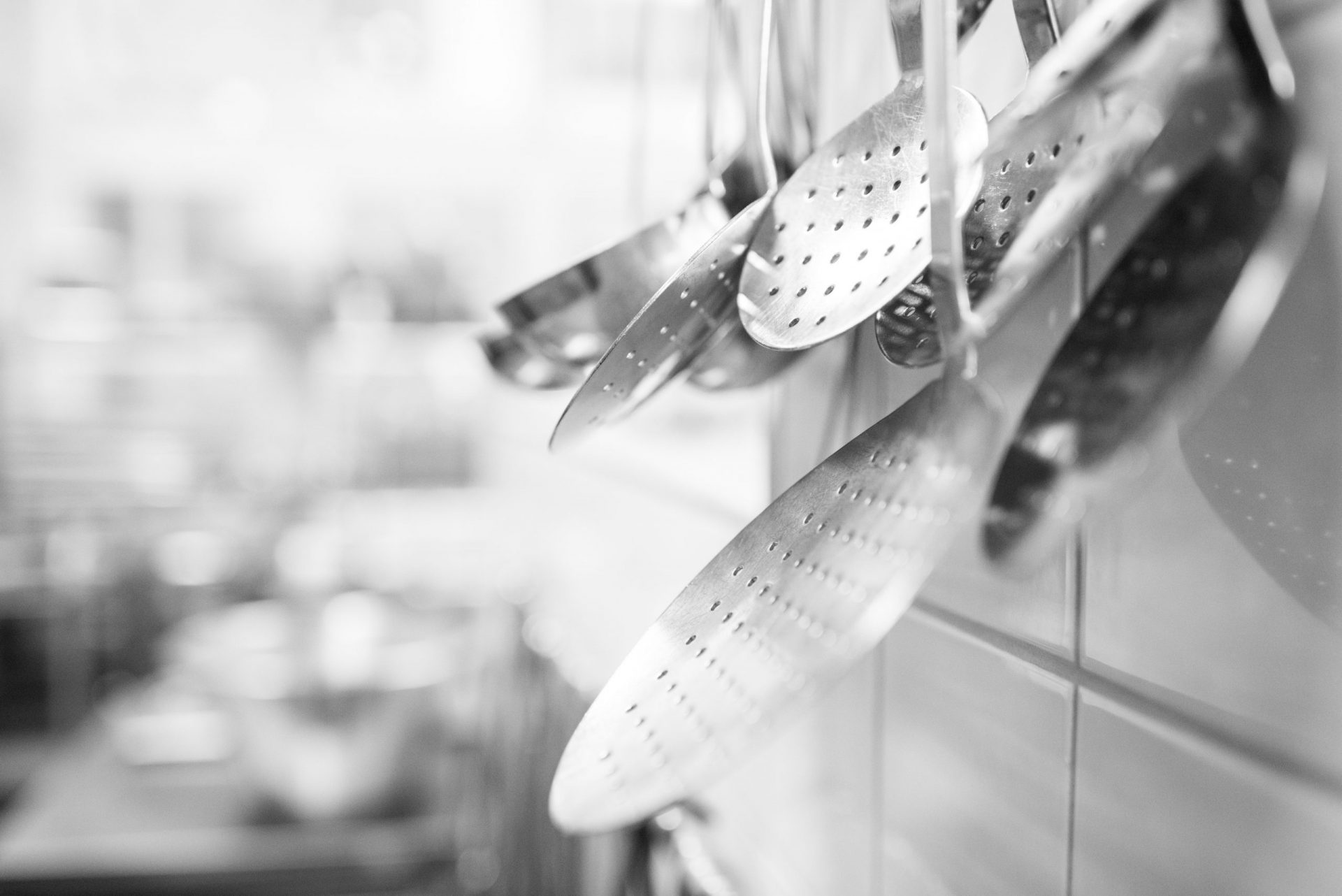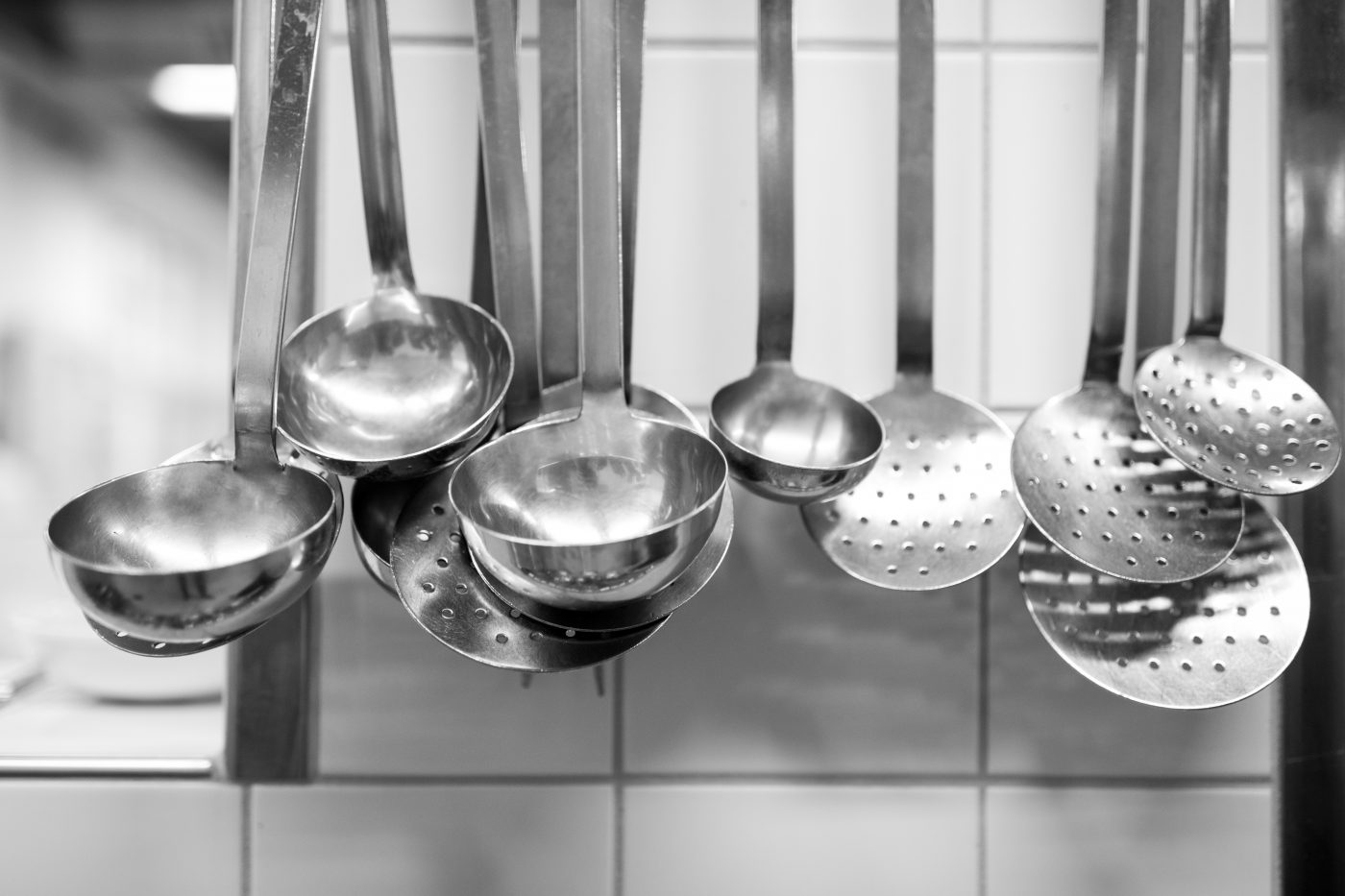
»Kantine Zukunft Berlin« – Sustainably transforming canteens & public plates
Together with local kitchen teams from communal catering, we are improving the quality of public meals in the city, within available budgets. We stand for tasty, appealing and sustainable meals!
About the project
Kantine Zukunft Berlin (engl.: Canteen “Future” Berlin) is an initiative dedicated to a sustainable transformation of Berlin’s public catering. Through needs-oriented and long-term consultation, with in-house trainings, seminars and workshops as well as networking events, we are advising and collaborating with teams from Berlin’s canteen kitchens to change the urban canteen landscape towards more quality, sustainability and appreciation.
How it all started:
Food has not played a big role on Berlin’s political agenda for a long time, until the city signed the Milan Urban Food Policy Pact in 2015. In the following year, the Berlin government committed to the development of a Berlin Food Strategy together with the local food policy council and the establishment of a so called „House of Food“: An institution, following the example of the Copenhagen Madhus, to support the quality improvement of public catering in the city by offering support and training to kitchen teams cooking for public institutions. In the coalition agreement preceding the start of the project, the government stated that its goals is to significantly increase the proportion of organic food in daycare centers, schools, canteens, cafeterias and catering in public institutions by 2021. To facilitate this development a project for large kitchens and caterers was to be started, with the aim of raising the share of organic products, seasonal and fresh ingredients within available budgets through further training and consultency. The cornerstone for Kantine Zukunft was thus laid.
Through a competitive tender procedure for the implementation of a Berlin „House of Food“, Speiseräume was selected as the grantee. The project »Kantine Zukunft Berlin« started its operations in October 2019. The project is funded by the Berlin Senate Department for Consumer Protection with €1.15 million per year until the end of 2028.
About Speiseräume:
Speiseräume, a young research and consulting company working in the field of urban food policy and communal catering, is responsible for the implementaion of Kantine Zukunft. The multidisciplinary team brings experience from areas including urban food policy, further/adult education, organic retail, the foodservice sector as well as sustainable transformation of commercial kitchens and innovation projects along the food value chain.
We are conversion agents
Our goals are manifold but our mission is to support kitchen teams to improve the quality of their food and work and to help them reach a minimum ratio of 60% organic produce in their canteens. This is not just a random number – it is a tipping point. When aiming for a cost-neutral transformation, such a high organic share means that a simple replacement of convenience products (which are the norm in public catering) with organic products of the same kind, is impossible. To stay within budget, processes and attitudes have to change. This is exactly where we step in with our program: updating procurement policies reasonbly, purchasing more seasonal, regional and fresh products, planning simple yet diverse menues, incorporating more variety with less meat, regaining the passion for cooking, developing new recipies and finding ways to reduce food waste.
More than „just“ organic
We acknowledge the great untapped potential regarding sustainable public procurement and communal catering, in Berlin and elsewhere. Procurement is a powerfull tool to promote the uptake of healthy and sustainable food. Millions of meals are served and eaten in public canteens on a daily basis, by children, students, patients, prisoners and pensioners. Only a fraction of those meals is prepared with fresh, regional and organic produce – only a fraction is what we would call good food. Yet it is good food that helps maintain greater health, promotes healing rates, improves concentration and behaviour. Good food for us does not merely mean nutritious though, it includes much more: where food comes from, how it is produced, transported, prepared and discarded. When we speak of a sustainable transformation of the cities public plate, we take into account all of these steps along the food supply chain while targeting the kitchen teams of Berlin’s canteens.
We want to make a change…
… on Berlin’s plates:
We think that every Berliner has the right to good food. Delicious, sustainable and good for the people and the region.
… in the canteens:
The canteen should become a place where people like to stay. A place that stands for good food and excellent hospitality.
… in the kitchen teams:
For us, a sustainable transformation also means that not only the food but also the vocational groups in the kitchens are shown greater appreciation. We want to motivate and inspire the people in the kitchens, so that in the end, you taste the difference.
… in society:
We are convinced that a change in community catering has a lasting effect on Berlin’s dining culture and contributes significantly to the health and well-being of Berliners.
… in the environment:
The planetary health is significantly related to our eating habits. Raising the share of organic and fresh produce used in Berlin’s communal catering, with several hundred thousand meals a day, is a good lever for initiating and supporting the food system change in the metropolitan region.
The transformation program: »Kantinen-Werkstatt«
At the core of our work is the »Kantinen-Werkstatt« (engl.: Canteen-Workshop) – a comprehensive consultancy program which supports kitchen teams in adapting processes and skills to new circumstances. We work with intensive, individual and practical support right up to the frying pan and peeling machine. Over a period of around six months kitchen staff receive guidance directly in the kitchen by our trainers as well as through workshops and seminars at our premises (currently under construction).
The »Kantinen-Werkstatt« has a central instrument: Increasing the proportion of organic food used to prepare the meals to 60% – without incurring additional costs. As mentioned before, the high proportion of organic food is primarily a lever for a fresher, more attractive and environmentally friendly catering offer. Such a high ratio of organic ingredients influences purchasing and cooking processes positively, impacting the quality of the offered meals. Simply replacing conventional with organic products while keeping the same meal plan is impossible – fundamental changes are therefore unavoidable. It is precisely here that Berlin kitchens are supported by Kantine Zukunft with the »Kantinen-Werkstatt« in order to implement these changes strategically in a transformation process and establish them for the long term.
